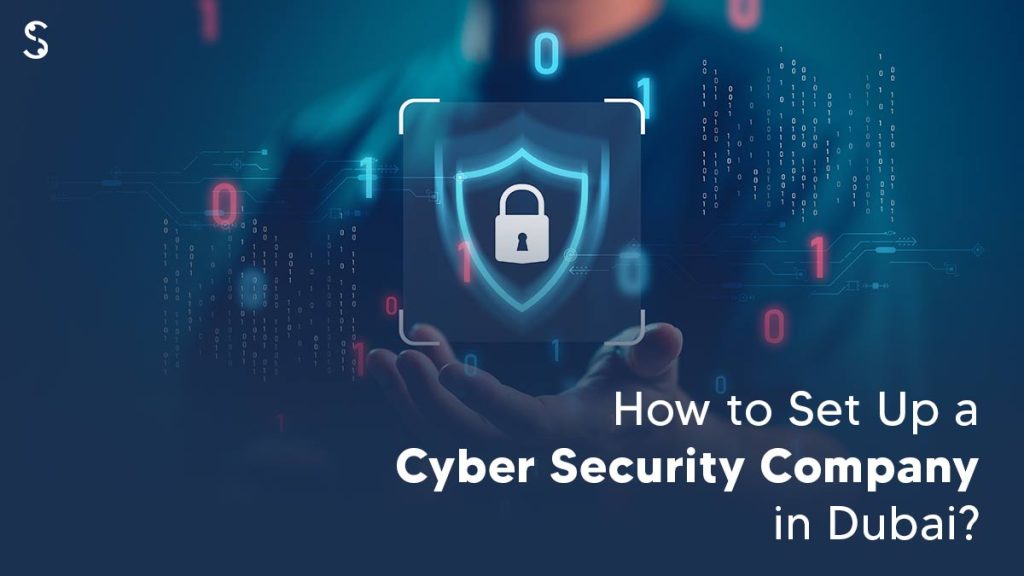1. Verify the authenticity of the certification AuthenticityBegin the verification process by verifying whether the business has received the appropriate certifications. Verify that the certificates are valid and current by contacting the authority that issued them or certification body. Alongside other certifications, ISO 27001 PCI DSS copyright ISO 27001 PCI DSS copyright are among the most important ones to take into consideration. Valid certifications indicate adherence to recognized security standards.
2. Local Regulatory Compliance
Be familiar with the local laws and regulations governing cybersecurity within the UAE, such as the UAE Data Protection Law and the Dubai Cybersecurity Strategy. Ensure that the company complies with these legal frameworks, as non-compliance can lead to damages to reputation and legal liability.
3. Examine Industry Specific Standards
Depending on the industry you work in and the nature of your business, you could discover that certain standards are more appropriate for your business. For instance, healthcare organizations may need to comply with HIPAA and financial institutions might be focused on PCI DSS. When you evaluate certifications that are specific to your industry and ensuring that your company is equipped to deal with sector-specific risk.
4. Request Documentation
Get all the documentation you need to prove conformance with the relevant standards. You can ask for audit reports along with security policies and risk management guidelines. Thorough documentation can provide insights into the firm's commitment to maintaining compliance as well as the effectiveness of their cybersecurity practices.
5. Request Information About Third-Party Auditors
Find out if your business is regularly audited by third-party auditors. Independent audits can provide an objective analysis of the compliance and security practices of a business. Look for audit reports from reputable organizations that verify the company's security practices.
6. Evaluate Continuous Improvement Initiatives
Cybersecurity is evolving and companies should demonstrate that they're committed to ongoing improvement. It is possible to determine whether the business regularly updates their security policies and procedures in order to adapt to changes in regulations and new threats. This could mean ongoing security update and training.
7. Check out Employee Training Programmes
The success of a security strategy is determined by the competence of its employees. Ask about training courses that the business offers for cybersecurity and compliance. Regular workshops keep employees informed with the most recent security threats and the latest requirements.
8. Review Incident Response Plans
Learn about the company's emergency response procedures. A robust incident plan should detail how the company manages data breaches, notification procedures, and remediation strategy. Ensure that their protocols align with the most effective practices.
9. Find Client Testimonials and Referrals
You can ask for references from existing clients to verify compliance and certifications. Testimonials provide insight into the company's effectiveness and reliability in managing cybersecurity risk, allowing you to assess their credibility in the market.
10. Research Industry Recognition
Examine the reputation of the company within the cybersecurity community. Search for recognitions, awards or memberships in professional associations which highlight the company's commitment to excellence and compliance in cybersecurity. A good reputation can be an indication of a company's experience and trustworthiness. Check out the most popular Cyber security services for more advice including network security in cyber security, information security and, inform security, network security and cyber security, cybersecurity consultancy services, manage security services, cyber security risks, network security systems, cybersecurity and business, cybersecurity and technology and more.

Top 10 Ways To Evaluate The Capabilities Of An Incident Response Company. A Cybersecurity Service Company
1. Know the Incident Response FrameworkBegin by examining the incident response framework that the company is using. A framework that is clearly defined, such as NIST Cybersecurity Framework (or the SANS Incident Response Process) shows that the business follows industry-standard practices for managing incidents. Be sure that they adhere to an organized procedure for handling incidents.
2. Evaluate Incident Response Team Expertise
Assess the qualifications, experience, and expertise of each member. Examine certifications such Certified Incident Handlers and copyright Security Professionals. In order to manage and reduce the impact of an incident efficiently an experienced team is essential.
Check out the case studies of past incidents
You may also request case studies or examples from the company of previous incidents they've handled. Analysis of the company's responses to scenarios from real life will provide an insight into the effectiveness of the business in speed, efficiency and overall management strategy. Learn in depth the methods they used to identify, contain and resolved incidents.
4. Verify the availability of 24/7 Incident Response Accessibility
If your company offers 24 hour emergency response You should inquire. A cyber-attack can happen at any moment. The presence of a personnel on call 24 hours a day will ensure that threats are addressed promptly and will reduce the time to repair and damage.
5. Learn more about incident detection tools
Review the tools and techniques the company uses to detect incidents. The most effective detection tools, like Security Information and Event Management Systems (SIEM) and intrusion detection systems (IDS) can assist to identify threats earlier.
6. Examine Communication Protocols
Examine any communication protocols the business uses in an incident. Clear and effective communication is essential for coordinating response, informing stakeholders, and making sure everyone is aware of their roles during an incident. Be aware of how they keep customers informed throughout the response process.
7. Review of Post-Incident Review Processes
Find out about the review process for post-incident reviews in your company. Conducting thorough reviews following an incident allows you to identify the opportunities to improve. Be on the lookout for companies that implement modifications built on the results of the reviews. This will help strengthen any future response efforts.
8. Assess the effectiveness of recovery strategies and methods for remediation.
Find out the strategies employed by the company to restore data and systems following an incident. Effective recovery plans must include ways to recover data and systems while also addressing vulnerabilities to avoid future incidents. Learn about the method they take to rebuilding and hardening their systems following an incident.
9. Review the compliance with regulatory requirements.
Make sure that your company's incident response capabilities meet regulations. In certain industries, there are specific regulations for reporting incidents and response. It is important to find a business that knows these regulations in order to comply.
10. Ask for references and testimonials.
Finally, you can also ask for references from current customers who have used the service. Testimonials from customers are an excellent way to gain valuable insight regarding the efficacy of, the reliability the service, and the overall satisfaction by the company's response to incidents. Have a look at the top rated application penetration testing dubai for blog recommendations including cyber security services, cyber security technology, security it company, information security description, cybersec consulting, it security technologies, cybersecurity consulting services, network security tools, best cyber security company, cyber security consulting company and more.

Top 10 Tips For Evaluating The Tailored Solutions Offered By A Cybersecurity Services Company
1. The identification of customization ability begins by evaluating how well the company is able to tailor its cybersecurity solutions to meet your particular needs. Ask about the method used by the company to customize services based on your business's sector, size and particular threats. If you have particular requirements an approach that is standard might not be sufficient to meet your requirements.
2. Determine Needs Analysis Process
Discuss the method used by your company to conduct a requirements analysis. A thorough needs analysis should comprise analyzing your current situation, identifying your vulnerabilities, and determining what you need. The more comprehensive their analysis, then the better their solution will match your requirements.
Take a look at previous Tailored Solutions
Ask for examples or case studies of tailored solutions that the company has implemented previously. This can give you insight into how well they can adapt to different situations.
4. Understanding the specific industry-specific solutions
Find out if the company provides specific solutions for the industry. Different industries, like healthcare, finance or retail, have particular cybersecurity challenges and needs. Solutions that are tailored to comply with these standards demonstrate the firm's expertise in the field.
5. Evaluate Flexibility in Service Offerings
How flexible is the business in changing its service offerings? The ability to modify services as your organization grows or the threat landscape changes is crucial for maintaining an effective security. Make sure they're willing to adapt their solutions as time passes.
6. Examine Integration with Existing Systems
Ask the company if they could integrate their custom solutions into your existing IT infrastructure. It is crucial to ensure an integrated system that is seamless in order for the new security measures to work effectively and without disrupting your existing processes.
7. Check for Custom Reporting and Analytics
Also, you should inquire if the company offers customized reports and analytics that are aligned with your goals. Customized reports can help you determine the effectiveness of security measures and take the right decisions based on data regarding your cybersecurity plan.
8. Assessment of Collaborative Method
Assessment of the willingness of your company to work closely together with your team. A collaborative approach ensures that your customized solutions are not only effective but also in line with your company's culture and operational procedures. Look for companies that prioritize cooperation and communication.
9. You can also inquire about the scalability of your solution
Check if the customized solutions are flexible. If your business expands or changes your cybersecurity needs might change. Be sure the company's solution is able to be easily scaled up or down to adapt to changes within your business without requiring many re-work.
10. Get feedback from customers on customized services
Also, collect feedback from existing clients on their experiences using the company's tailored solutions. Testimonials are an excellent way to gain valuable insight about how well the firm meets the requirements of its clients and how satisfied they are overall. Follow the best iconnect for more examples including ai in cybersecurity, cyber and security, information and cyber security, data and security, security by design, cyber cyber security, network security software, network and systems security, network security systems, security technology and more.
